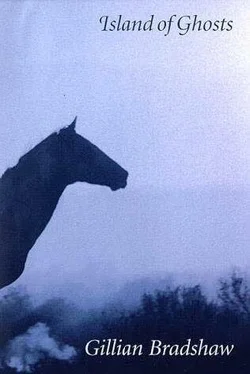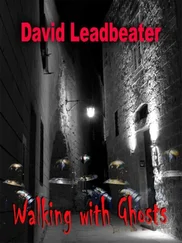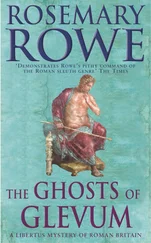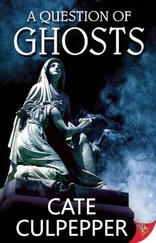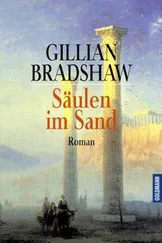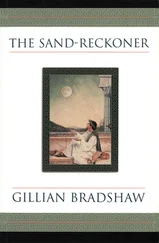Gillian Bradshaw - Island of Ghosts
Здесь есть возможность читать онлайн «Gillian Bradshaw - Island of Ghosts» весь текст электронной книги совершенно бесплатно (целиком полную версию без сокращений). В некоторых случаях можно слушать аудио, скачать через торрент в формате fb2 и присутствует краткое содержание. Жанр: Исторические приключения, на английском языке. Описание произведения, (предисловие) а так же отзывы посетителей доступны на портале библиотеки ЛибКат.
- Название:Island of Ghosts
- Автор:
- Жанр:
- Год:неизвестен
- ISBN:нет данных
- Рейтинг книги:3 / 5. Голосов: 1
-
Избранное:Добавить в избранное
- Отзывы:
-
Ваша оценка:
- 60
- 1
- 2
- 3
- 4
- 5
Island of Ghosts: краткое содержание, описание и аннотация
Предлагаем к чтению аннотацию, описание, краткое содержание или предисловие (зависит от того, что написал сам автор книги «Island of Ghosts»). Если вы не нашли необходимую информацию о книге — напишите в комментариях, мы постараемся отыскать её.
Island of Ghosts — читать онлайн бесплатно полную книгу (весь текст) целиком
Ниже представлен текст книги, разбитый по страницам. Система сохранения места последней прочитанной страницы, позволяет с удобством читать онлайн бесплатно книгу «Island of Ghosts», без необходимости каждый раз заново искать на чём Вы остановились. Поставьте закладку, и сможете в любой момент перейти на страницу, на которой закончили чтение.
Интервал:
Закладка:
I explained it on the way to the stables. Our troops were being offered the standard auxiliary pay, two hundred denarii a year, plus the cavalry allowance of two hundred denarii for the upkeep of one horse. However, most of us had more than one horse and we all had more armor than a Roman would. Even though we had men who could replace worn-out equipment for the dragon and didn’t need to turn to professional blacksmiths, still the cost of the upkeep of the armor would be high. Eukairios and I had worked out how big the allowance would have to be to take account of the differences, and had been pressing for the pay to be increased accordingly. Priscus had just offered me part of the sum, and suggested that we reduce the number of horses. For various reasons, I was not satisfied with this, and I told Arshak about it-warmly, because my mind was still hot with it. He frowned and asked questions.
“I don’t understand,” he said, when we’d finished. “How do you know these things, what it costs to repair armor or provide fodder for a horse?”
His tone was flat, and I suddenly understood all too well that what he meant was, “You’ve Romanized, more even than I expected.” And I saw in the same instant that it was horribly true.
“I have a good scribe who explains it,” I replied, cursing myself. “I needed to learn, and did.”
He stopped suddenly and caught my shoulder. We were just at the corner of the stable yard, standing in one of the cramped alleys of the military compound. “What are they doing to us?” he asked, looking at me earnestly.
“What do you mean?” I replied-coolly, trying to step back from myself and find where I stood.
“Gatalas is dead, you talk of pay negotiations and get Facilis to vouch for you, and I… Ariantes, we are scepter-holders of the Iazyges. Or we were.”
“We were,” I said quietly. “But now we are commanders of numeri for the Romans.”
“For the Romans! Neither you nor I love the Romans. How can we fight for them?”
“We swore to the emperor himself at Aquincum that we would do so.”
“We didn’t know what we were swearing. We had no conception of what it meant. We thought we would stay Sarmatians but fight under another commander-but they’re making Romans of us. We eat bread and sleep in tombs and give bribes to officials. Marha! Haven’t you sickened of it yet?”
I was silent for a moment. “I and my men have kept our wagons,” I said at last. “No. I am no sicker of it than I was when we arrived.”
“Our wagons were broken up,” Arshak said bitterly.
“The men got barracks, and I got a house. It stands in a row with the houses of the tribunes, and it’s made of stone. Everything is in rows, and made of stone,”-he glared furiously at the featureless walls around us-“and the Romans think we must be grateful for the comfort. I’d set fire to it, if it would only burn!” He let go of my shoulder. “But you seem to like it here!”
“What did I have left, across the Danube?” I asked, very slowly.
He looked at me with hot eyes. “Things here could be different.”
“And I’m trying to make them so.”
“You’re tinkering. Talking in their words, becoming more like them every day, despite yourself. Pay! Wagons! The problem is the Romans. The native Britons are a lot like us; we would agree with them very well, if this were a British kingdom. They have kings and queens of noble blood, who reward valor and not greed. Why should we fight them?”
“Who has been telling you this?” I asked, and saw the answering flicker in his eyes.
“Do I need anyone to tell me? You can’t want to fight for Rome-for the people who murdered your wife and child, insulted their bodies, and tossed them into the fire.”
I slapped him across the face. “Don’t mention them to me, Arshak!” I told him, in a low voice, while he stared in angry surprise. “Don’t ever mention them to me!” I turned and strode furiously on into the stable.
After a minute, Arshak followed me. I half expected him to whisper a time and place to meet to settle the argument, but he said nothing-and, as soon as he met Valerius Victor, became instantly all charm again.
The tribune had a squadron of the Dalmatian cavalry from Condercum, and we rode out with that to escort us: I was politely given to understand that my own bodyguard would not be welcome. When we reached the fort that night, I felt that I wasn’t welcome either. “The air was pretty poisonous,” Victor had said, and indeed, it was thick with bitterness and hatred. The Roman garrison watched me and Arshak ride in the gate with a heavy sullen stare that set my teeth on edge, and they kept it up the whole time we were there.
Though it was late, I asked to speak with Gatalas’ officers in the main hall of the headquarters building at once. The garrison grumbled but, at Valerius Victor’s insistence, agreed, and set up torches, which cast a flickering light over us and made the statue of the emperor, standing larger than life in the chapel of the standards off the hall, seem to be alive and watching. When Gatalas’ men filed in, under armed guard, they gave the statue and the Romans the same heavy sullen stare that the Romans had given us.
I asked Gatalas’ men how they were; they released a torrent of helpless grief and resentment. Their wagons had been broken up, some of their friends had been executed for killing the Romans they’d quarreled with, some had been beaten like slaves, their prince was dead, and they had been ordered not to defend him. Worse, far worse: the Romans had burned his body. They’d watched helplessly, disarmed, imprisoned, and disgraced. Their chief consolation was how many Romans Gatalas had managed to kill before he died.
“He revenged himself,” I agreed, trying to put a hopeful face on it, though I was appalled. “And he has what the gods promised him, death in battle. He was warned of danger from fire, but not of destruction: perhaps his soul will escape. At Cilurnum we sacrificed three horses on his behalf, and prayed to the gods for him. But you were promised good fortune and glory in war, and your prince ordered you to surrender so that you could have what you were promised. I’ve come to help you choose a new commander who can offer prayers for Gatalas’ spirit and for your own future.”
“We have no power over who’ll command us,” they replied. “That was why our lord mutinied. He’d heard that they meant to depose him and set that tribune in his place.” And they glared at Victor, who was sitting by the tribunal, looking blank. He didn’t speak Sarmatian.
“It wasn’t true,” I said. “They thought of doing that before they met us, but they changed their minds, and there were no plans to replace anyone.”
They looked at me sullenly, as though they were sure I was lying. Then they looked at Arshak, who was sitting on the table swinging his foot. “Didn’t you send us a message of warning, Lord?” one of the captains asked. He was a young man, but I’d had him in mind as a possible leader for the dragon: he’d struck me as the most intelligent, as well as one of the most loyal, of Gatalas’ officers. His name was Siyavak, a slim man, with dark hair and eyes that made him stand out from the rest.
Arshak stopped swinging the foot. “I?” he asked. “I didn’t send any message.”
At this they looked bewildered. “Lord Gatalas showed us the message and said it came from Eburacum,” said Siyavak.
“If there was a message from Eburacum, it wasn’t sent by me,” said Arshak, angry now. “Do you still have this letter?”
“It wasn’t a letter,” replied Siyavak, “but we have it. Our lord left it with us, and if the Romans will let me, I’ll fetch it.”
The Romans allowed him, and he came back carrying a bundle wrapped in black. He set it down on the floor in front of Arshak and unrolled the cloth: a set of divining rods tumbled onto the floor. Moving with sharp, angry jerks, Siyavak counted them out, and I saw that they were tied together in sequence by a red cord. They were all black; none of the chalked ones were included. “They promise death and destruction,” whispered Siyavak. “He had them read before us. And on the final rod..” He sorted through and picked one up. “This.”
Читать дальшеИнтервал:
Закладка:
Похожие книги на «Island of Ghosts»
Представляем Вашему вниманию похожие книги на «Island of Ghosts» списком для выбора. Мы отобрали схожую по названию и смыслу литературу в надежде предоставить читателям больше вариантов отыскать новые, интересные, ещё непрочитанные произведения.
Обсуждение, отзывы о книге «Island of Ghosts» и просто собственные мнения читателей. Оставьте ваши комментарии, напишите, что Вы думаете о произведении, его смысле или главных героях. Укажите что конкретно понравилось, а что нет, и почему Вы так считаете.
